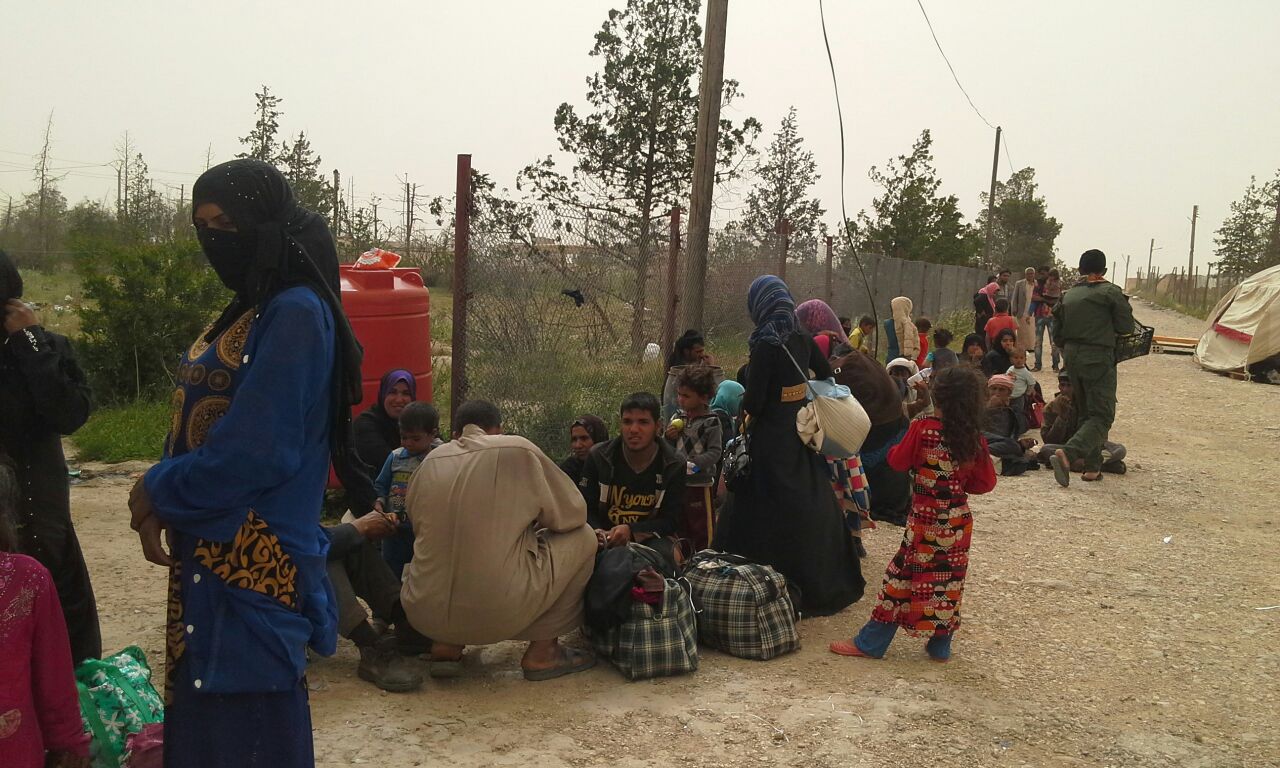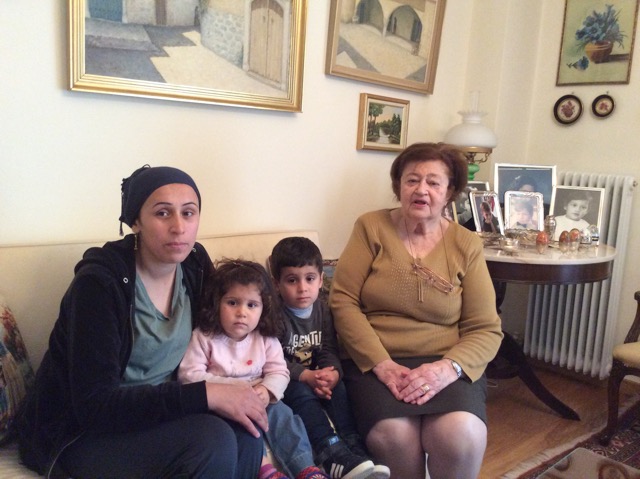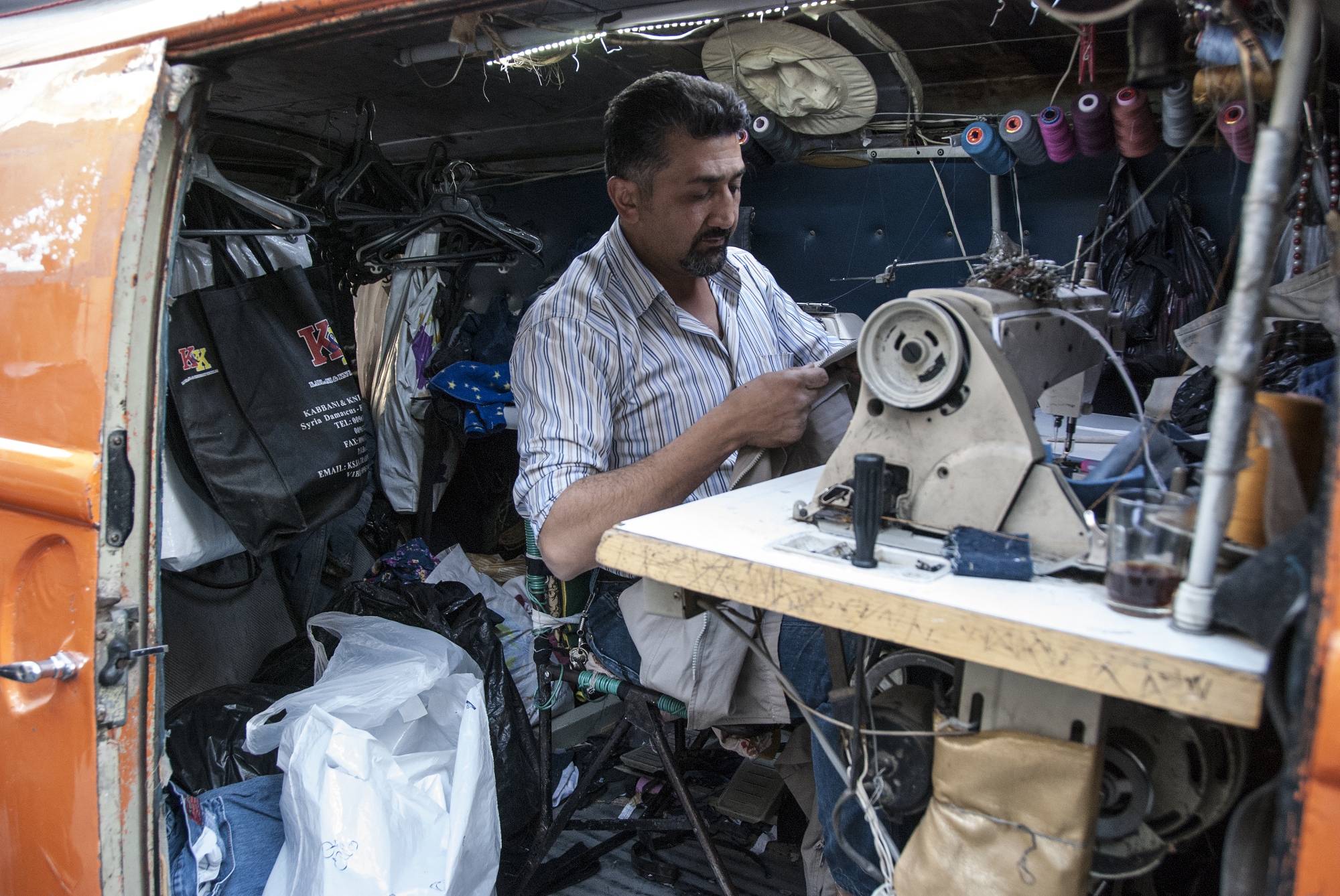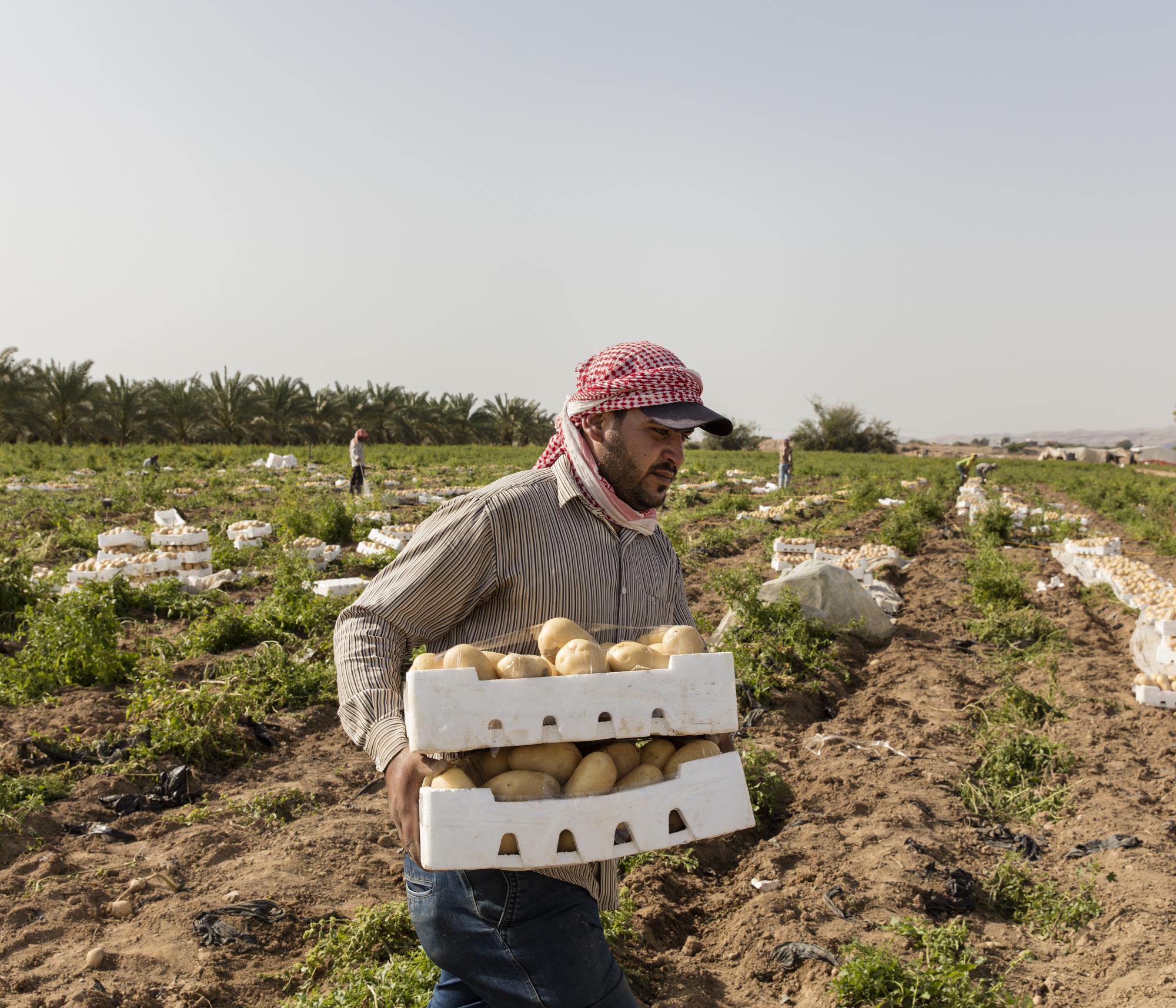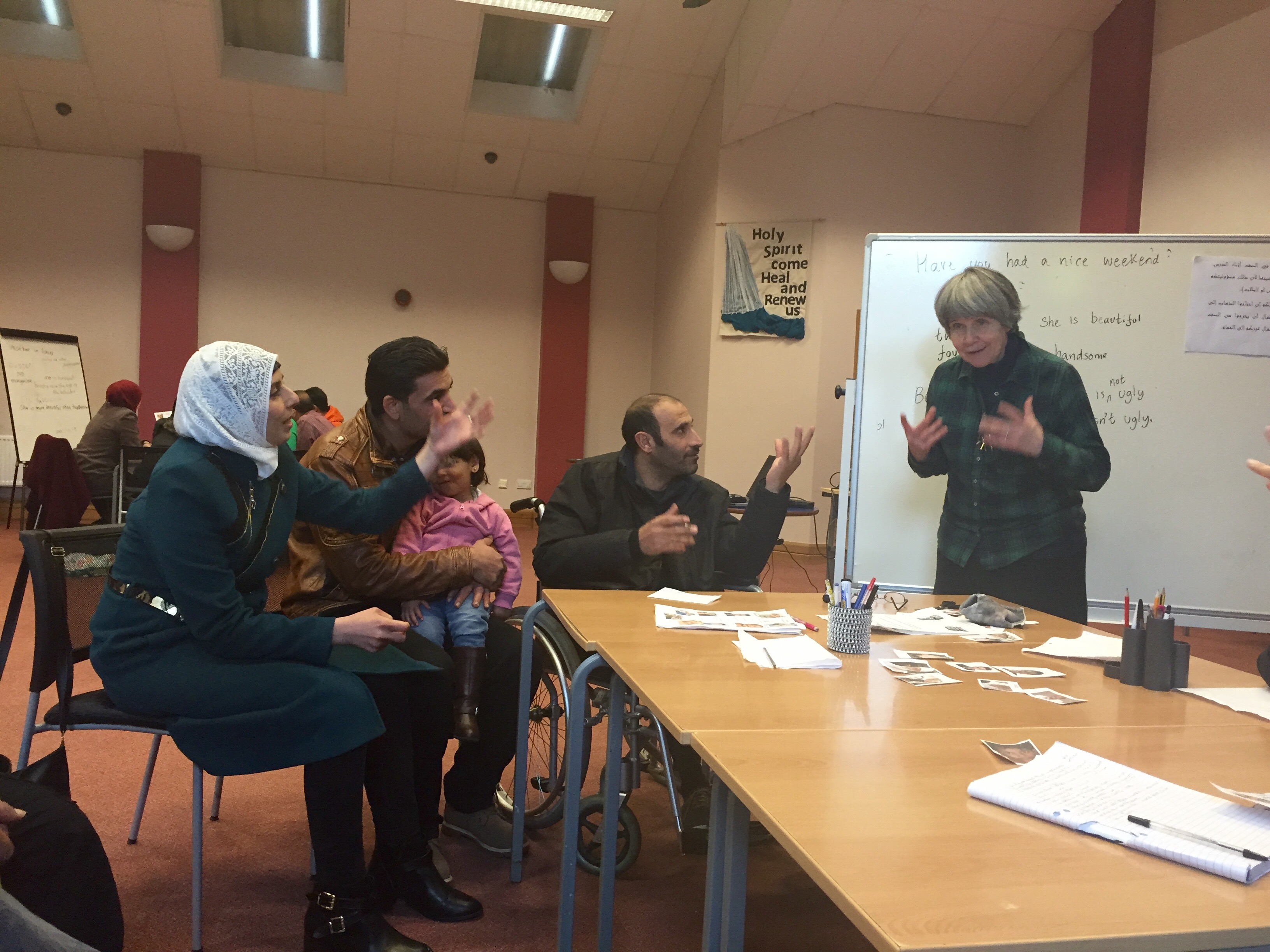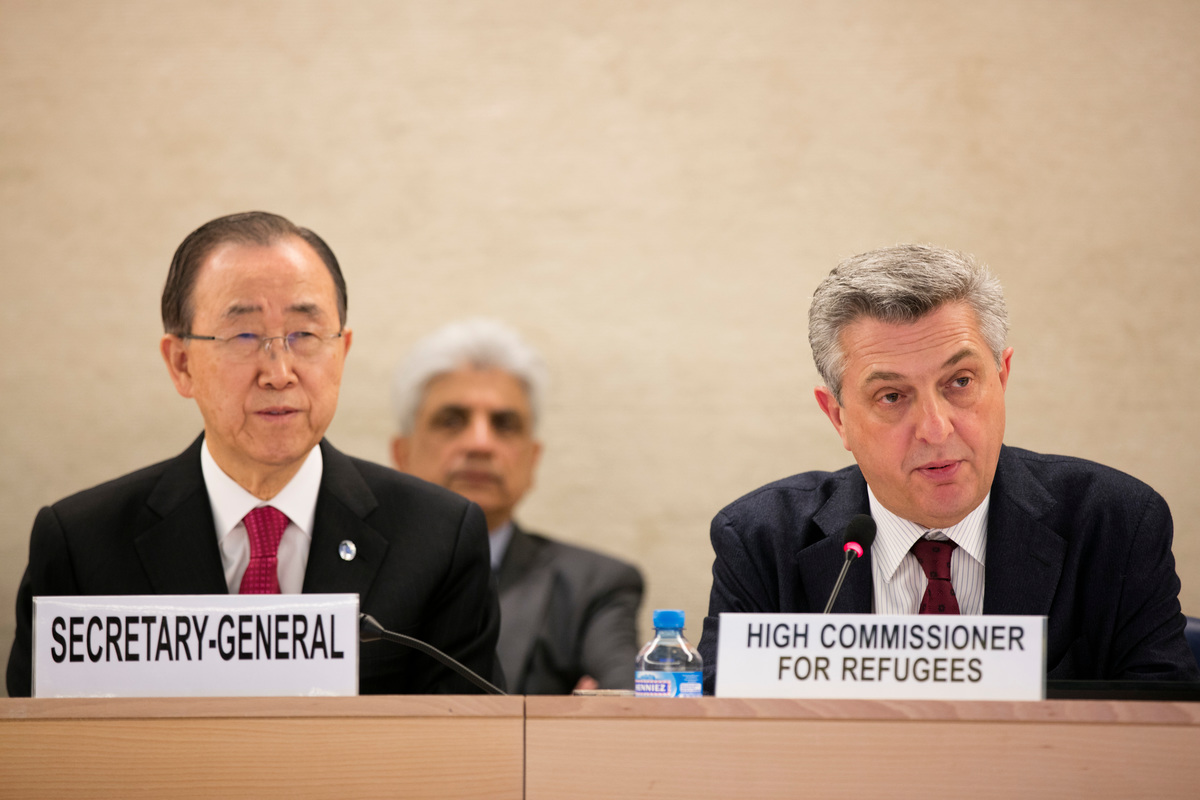Despite insecurity, logistical obstacles, aid effort in Syria makes some progress
Despite insecurity, logistical obstacles, aid effort in Syria makes some progress

DAMASCUS, Syria, October 31 (UNHCR) - The UN refugee agency had some success in distributing emergency humanitarian assistance to thousands of Syrian families in previously inaccessible areas over the Eid al-Adha holiday. But the effort was hampered by insecurity and logistical hurdles.
In all, 550 tons of UNHCR supplies were set aside for possible distribution to up to 13,000 affected families - or 65,000 people - during a proposed ceasefire, which did not hold.
"Unfortunately, the violence continued," said UNHCR spokesman. Ron Redmond. "Nevertheless, UNHCR and its partners were able to make some progress in delivering emergency family kits to Homs, south Hassakeh, al Raqqa and Aleppo."
As part of the joint UN humanitarian response in Syria, UNHCR had already pre-positioned five thousands 42-kilogramme emergency family kits in the Syrian Arab Red Crescent (SARC) warehouse in the northern city of Aleppo and had hoped to deliver 5,000 more from a Damascus stockpile over the weekend.
Last Thursday, SARC and its local relief committee partners in Aleppo did manage to distribute some of the pre-positioned emergency kits to 800 families - about 4,000 people. But insecurity prevented further distributions in Aleppo and nearby Idlib. "Nor were we able to deliver the other 5,000 emergency kits from Damascus," said Redmond.
The refugee agency did, however, manage to get 20 trucks, carrying UNHCR family kits, to Homs. One truck in a seven-vehicle convoy from Damascus to Homs was hijacked on Saturday and its cargo of mattresses stolen. The driver was unharmed and the truck later released.
Altogether, the deliveries to Homs are bringing 1,900 emergency family kits for up to 9,500 people. Twelve of the trucks arrived on Saturday as part of a joint UN mission to the city. The aid supplies were delivered to the SARC warehouse in Homs.
Insecurity in and around the city prevented immediate distribution of the aid. SARC officials said they and their local counterparts would be able to distribute the family kits over the next two to three weeks, including some 700 to the Rastan and Talbiseh areas if security allows.
"Our team in the north-eastern city of Hassakeh worked through the weekend opening supply routes to southern Hassakeh governorate and to the north-central city of Raqqa. A trial run on Saturday succeeded in delivering 70 family kits to southern Hassakeh and another 150 to Raqqa," said Redmond.
"Although a lack of diesel fuel in the region delayed the operation, by mid-week we delivered more than 1,000 kits to these two areas and 270 families have already received the packages in southern Hassakeh," he added.
UNHCR has more than 350 staff in three offices across Syria and is part of the joint United Nations humanitarian response. The agency is at the half-way point in a large-scale operation to distribute non-food aid packages to 500,000 people by the end of this year.
The refugee agency is also carrying out an emergency cash assistance programme for displaced people, providing emergency funds for vulnerable families so they can pay rent or meet other critical needs not covered by the aid package programme. So far, 9,800 families have benefitted from the cash programme in Al Nabek, south of Homs, and in Hassekeh.
Elsewhere in the region, the number of registered Syrian refugees or those awaiting registration in surrounding countries now totals more than 372,600. They include 105,700 in Jordan; 106,300 in Lebanon; 45,300 in Iraq; 107,800 in Turkey; and 7,500 in North Africa.

